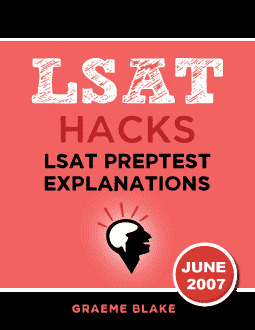DISCUSSION: The author thinks copyright owners are being silly. Their voicemail analogy helps show that the owners are being silly. Everyone agrees it isn’t morally wrong for strangers to hear a voicemail greeting.
The voicemail situation helps illustrate that copyright owners already placed the document out for public consumption. If you make a public site, it is public and can be viewed by whoever finds it – just like voicemail can be heard by whoever calls.
Three of the wrong answers mention legal or copyright issues related to voicemail. Here, as in question 19, you should use some common sense. The author probably didn’t say anything crazy. Have you ever heard of a legal case about voicemail copyright? Everyone understands voicemails are available for the public to listen to, if you have the number.
___________
- The author didn’t say that voicemail has any legal problems.
- It’s true that voicemail was an analogy. But the author used it to argue against those who want stronger copyright.
It’s important to recognize when a passage is descriptive, and when it is making an argument. Here the argument is that stronger copyright proponents are wrong. - There were no legal problems with voicemail! The author didn’t mention any. Have you ever heard of a voicemail lawsuit?
- CORRECT. The vaguest answer is often the best. The LSAT is testing your ability to figure out what “the basic principle” refers to. That principle is: if something is made public for distribution, it isn’t a problem to tell other people where to find that thing.
- The author didn’t say this. Have you ever heard of a telephone copyright case?


Leave a Reply